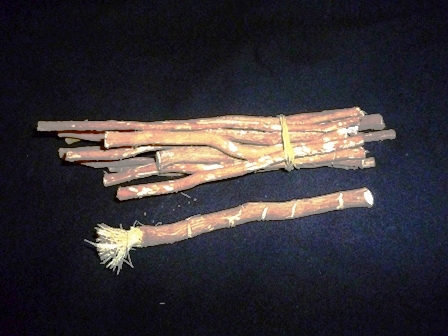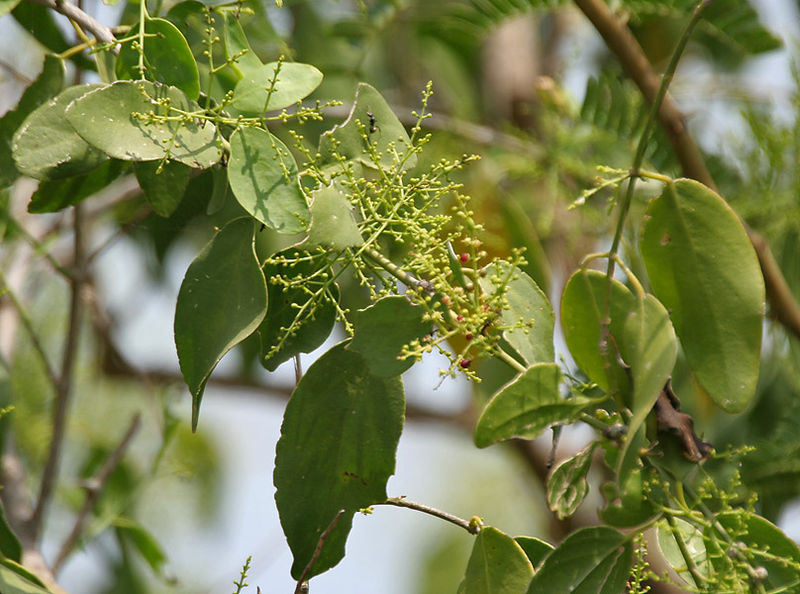Today’s blog post will be about miswak twigs, teeth cleaning twigs made from the Salvadora persica tree, which is known as pilu tree in India (Hindi पीलू pilu or कूम्भी kumbhi) and as arak tree (Arabic أراك ) in the Middle East. Miswak twigs (Arabic السواك) are known as kayu sugi in Malay, and are also often called just siwak. Miswak twigs are commonly used throughout the Middle East, India, Central and Southeast Asia, and are especially common in Muslim countries, since the Prophet Muhammad recommended their use in a hadith. The use of miswak therefore plays a role in Islamic hygienic rules, and its use is recommended e.g. before religious practice, on Fridays, before journeys, before joining a gathering, etc.
To use a miswak twig as a toothbrush, you just cut off the end of a twig, then chew it lightly, so that its end will fray and turn into bristles. You then use these bristles to brush your teeth. Miswak has slightly antiseptic properties and can stop tooth decay. You can buy miswak twigs in oriental and Asian foods stores.
The evergreen pilu tree (Salvadora persica), from whose twigs miswak sticks are made, is a salt-tolerant shrub or small tree that is native to arid zones in the Middle East, India and Africa. The use of its twigs dates back 7,000 years ago, to the ancient Babylonians and Egyptians. In Pakistan, the tree has an association with graveyards.


